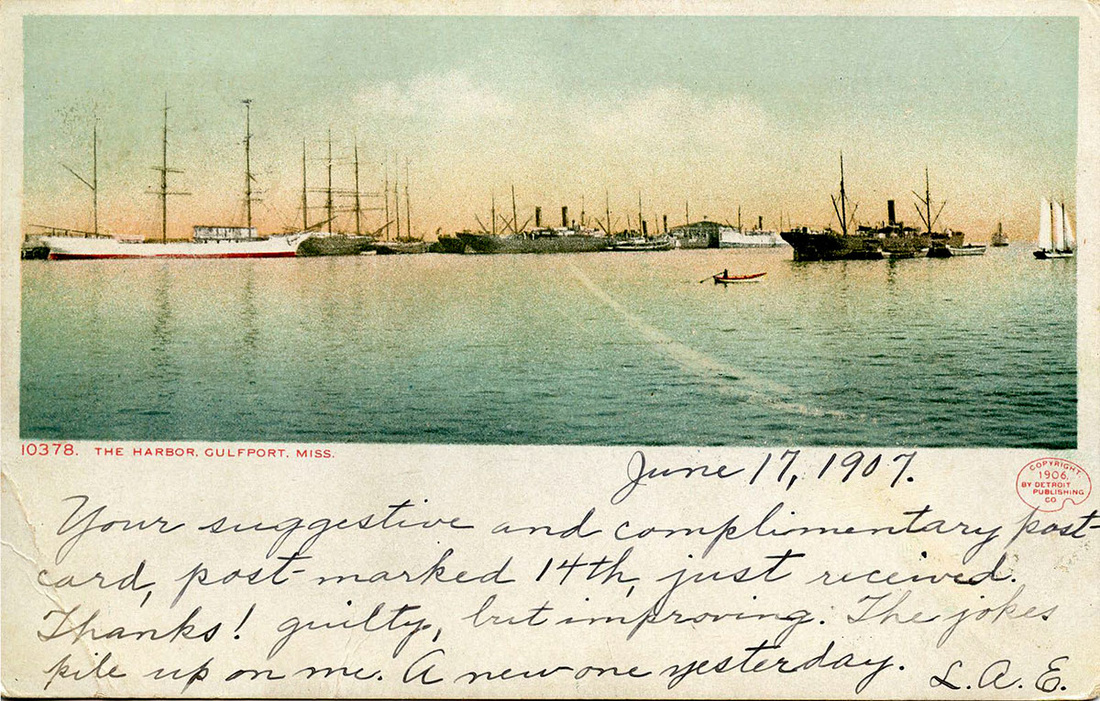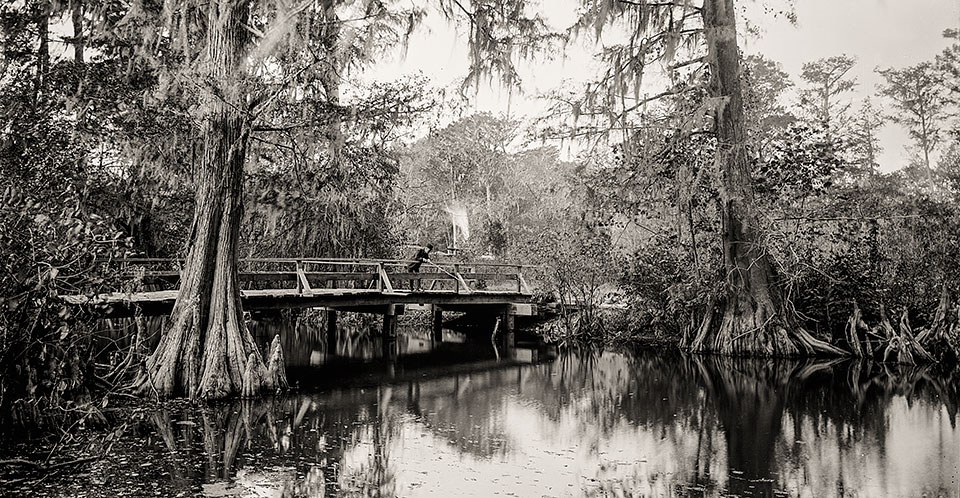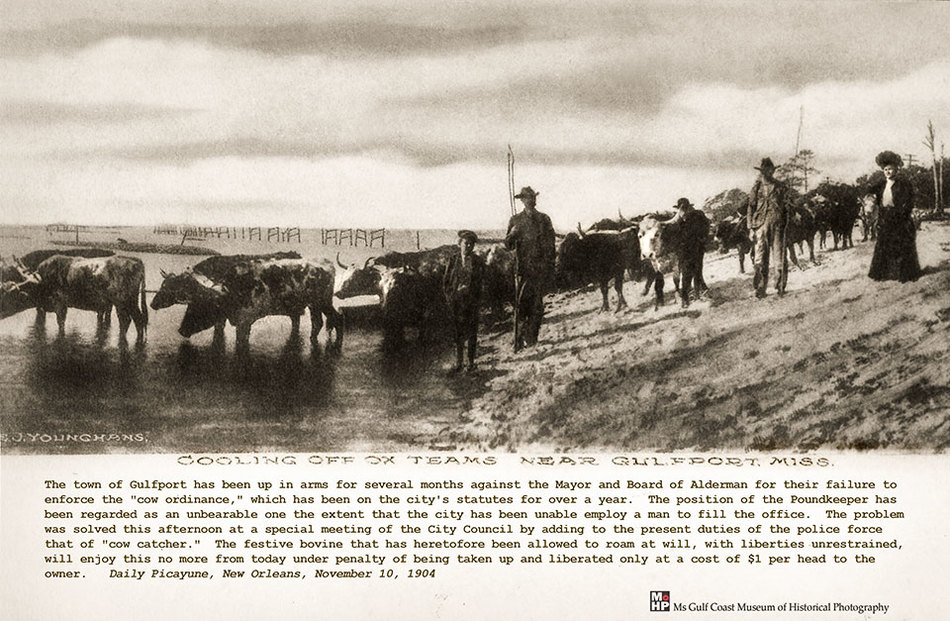/// Traveling by Trolley /// Port of Gulfport /// The Gulf &Ship Island Rail Road /// Downtown Gulfport /// The Timber ///
founding Fathers of the City of Gulfport
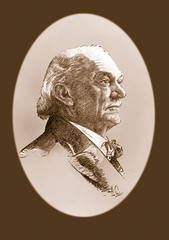 Portrait by, Harry Coughlin
Portrait by, Harry Coughlin
William Harris Hardy 1837-1917
“Gulfport was conceived by William Harris Hardy as a pencil mark on a map… surveying a railroad he was building…”
“Propped against a tree eating lunch at the present site of Hattiesburg, Hardy reflected upon the millions of acres of long-leaf yellow pine in southern Mississippi that went unharvested because of lack of marketing facilities. Taking out a map, he drew a line from Ship Island harbor that intersected his railroad at the spot where he sat. Where the line crossed the coast, Hardy made a mark on his map.”
Source: Gulfport, Beginning and Growth, Henry W. Black, 1986
Portrait by Artist, Harry Coughlin
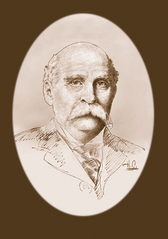 Portrait by, Harry Coughlin
Portrait by, Harry Coughlin
Joseph Thomas Jones 1842-1916
“Captain Jones arrived on the Mississippi Gulf Coast for the first time on February 14, 1897…
“By the time Captain Jones left Gulfport in April to return to his home in Buffalo, New York, he had gained renewed enthusiasm for his southern expansion. He was captivated by the opportunity for industrial development which the region offered. He completely surrendered to the spell of its majestic and natural beauty.” Source: Gulfport, Beginning and Growth, Henry W. Black, 1986
Portrait by, Harry Coughlin
Early History
The story of Gulfport is the story of the Industrial Revolution that defined the 20th Century. The town was conceived, built, and maintained for profit to investors, and other shareholders. A group of industrial titans saw the potential for wealth, and had the means to make it happen. The story of Gulfport is the story of a boom town, the growth of a nation, and the depletion of a natural resource.
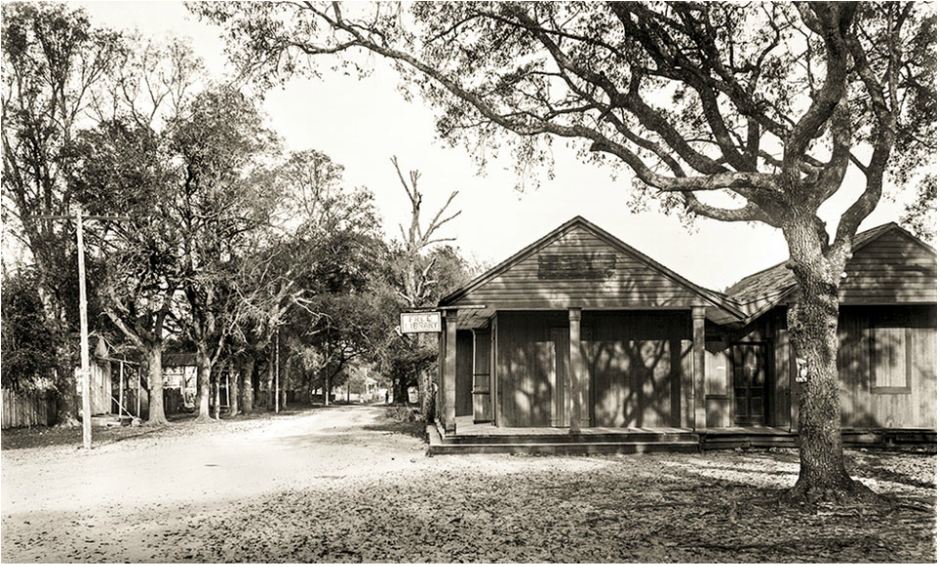 Free Library and Main Street, Mississippi-City, Willis Vail 4/6/1902 #911 Jermyn Collection.
Free Library and Main Street, Mississippi-City, Willis Vail 4/6/1902 #911 Jermyn Collection.
Gulfport's story begins in the 1840s in the villages of Mississippi City and Handsboro, east of present-day downtown. Early enterprise was devoted to cutting and selling the timber reserves of the pine forests inland. Mississippi City was south along the gulf and Handsboro was north of it along the bayous. Because Mississippi City was the center geographically, it was named county seat, and the county courthouse was built there in 1842. The original County Seat of Harrison County from 1841 to 1902, Mississippi City had public and private schools, a library, courthouse, post office, hotels and several churches. The town’s beach location on the Mississippi Sound attracted visitors throughout the year because of the mild climate. Gulfport was incorporated on July 28, 1898, and in August of 1902 Harrison County residents voted it to move the County Seat to Gulfport.
May 3, 1887
"The site that Captain Hardy selected for his port on the Gulf was the most neglected area on the Mississippi Gulf Coast. A low-lying, mosquito-infested, sandy marsh with several streams flowing through it, towering pine, magnolia and oak trees growing almost to the water's edge, and thick tangles of underbrush, it was an ideal habitat for its only inhabitants- deer, turkey, possums, raccoons, alligators, and dozens of varieties of birds. Being accessible only foot, horseback, or shallow-draft boat, for years immigrants to the Coast had opted to locate further west in Long Beach or eastward toward Mississippi City." Source; The Beginnings of Gulfport, Henry W. Black
"The site that Captain Hardy selected for his port on the Gulf was the most neglected area on the Mississippi Gulf Coast. A low-lying, mosquito-infested, sandy marsh with several streams flowing through it, towering pine, magnolia and oak trees growing almost to the water's edge, and thick tangles of underbrush, it was an ideal habitat for its only inhabitants- deer, turkey, possums, raccoons, alligators, and dozens of varieties of birds. Being accessible only foot, horseback, or shallow-draft boat, for years immigrants to the Coast had opted to locate further west in Long Beach or eastward toward Mississippi City." Source; The Beginnings of Gulfport, Henry W. Black

